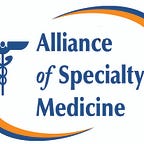Reforming Prior Authorization Remains Top Policy Priority
Linda Lee, MD
It is the mantra of any medical specialist who encounters cancer: early screening and detection can save lives. This is why we encourage our patients to schedule mammograms, have their prostate checked, and schedule regular colonoscopies once they turn 45. As a gastroenterologist, I have seen the life-saving impacts of colonoscopies on my patients.
Colon cancer is the number two cancer killer in the United States, which is why we designate March as Colorectal Cancer Awareness Month. GI docs have also fought for years to ensure that colonoscopy is a covered benefit under the Affordable Care Act and for Medicare patients. We also went to great lengths to ensure that patients who underwent a colonoscopy were not sent a surprise bill if a precancerous polyp was removed during the procedure. Healthcare policymakers agreed with us that patients should not endure barriers to care, especially when it comes to cancer screenings.
Imagine our shock when UnitedHealthcare announced in March, right in the middle of Colorectal Cancer Awareness Month, that they would require prior authorization for surveillance colonoscopy for those patients who have previously had polyps removed and are at a higher risk for developing colorectal cancer.
Specialists nationwide are seeing a rise in prior authorization throughout their practices from every major insurer. In fact, the Alliance of Specialty Medicine surveyed over 800 physicians, showing that the use of prior authorization has increased across all categories of services and treatments in the last five years. This most recent prior authorization program to impact gastroenterologists announced by UnitedHealthcare is a step back at a time when payors should be developing innovative policies in collaboration with healthcare providers to improve patient care.
Requiring prior authorizations leads to more bureaucracy within the insurance company and each healthcare provider’s practice. Doctors need to fill out prior authorization forms, then waste time trying to get through to a 1–800 number to speak with someone who has no clinical knowledge, and then are told we need to speak with someone else who actually does have some medical knowledge about why these procedures are necessary. Most importantly, prior authorization leads to poorer patient care as we struggle to wade through the morass of prior authorization while patients are bleeding, unable to swallow, vomiting, and more while waiting for their insurance company to approve a potentially life-saving procedure.
Like many medical societies, the American Gastroenterological Association (AGA) has supported federal legislation that would streamline prior authorization processes in Medicare Advantage (MA), the private insurance plans that contract with the Medicare program, given the explosion of these policies over the past several years. The Improving Seniors Timely Access to Care Act, bipartisan, bicameral legislation, would reduce prior authorization burdens by establishing several requirements and standards relating to the prior authorization processes under Medicare Advantage. This bill had over 326 cosponsors in the House and 52 cosponsors in the Senate last year but did not become law.
The Centers for Medicare and Medicaid Services (CMS) have also recognized the impact of prior authorization on physician wellness and how it contributes to physician burnout. As a result, the agency recently proposed implementing many of the provisions outlined in the legislation, and we have joined with the Alliance of Specialty Medicine in expressing our support for moving forward with many of their proposals.
The problems regarding prior authorization are not just affecting GI patients. Still, our experience with UnitedHealthcare should serve as a warning to health policymakers that this chronic problem needs to be addressed immediately.
Linda Lee, MD FACG FASGE
Medical Director of Endoscopy, Brigham and Women’s HospitalAssociate Professor of Medicine, Harvard Medical School
